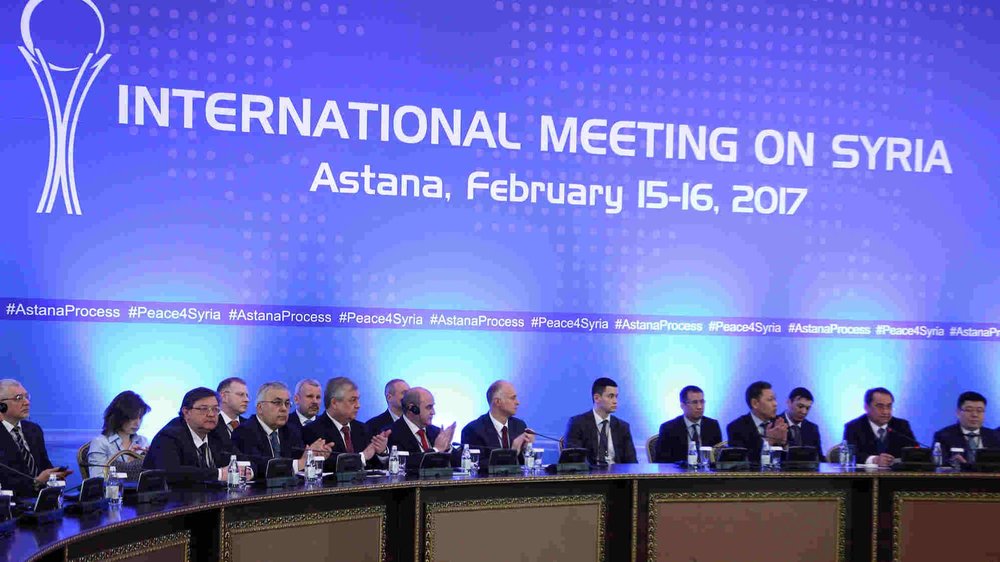Astana talks wrap, partial agreement achieved
Astana talks wrap, partial agreement achieved

TEHRAN – A source told Sputnik that parties to the ongoing Astana talks on Syria have agreed on two out of the four de-escalation zones.
However, the whole package of documents related to the issue will be finalized during the next round of negotiations, due late August.
"An agreement has been reached on two zones already, on Eastern Ghouta and north of Homs. There is still no agreement on Idlib. Probably, it will not be reached today because of lack of time," the source said.
"The documents are almost ready, but one of the parties wishes to adopt them altogether, only as a package of documents. There are seven, and they define the mandate [of the monitoring forces], the right to use guns, etc. That is why it has been decided that next week the joint working group will meet in Tehran to reach a final agreement on all these documents, including the one on detainees. They will be signed during the next round of Astana talks," the source added.
According to the source, Turkey at this meeting has a position different from that of Syria and Iran on the issue of detainees' release.
"Some differences emerged again on the agreement on detainees…. Documents had already been agreed on [before the current round], but now parties arrived with different positions," the source concluded.
The Astana talks have brought representatives from the Syrian government and opposition groups to the negotiating table in order to find a solution to the Syrian conflict, which broke out in March 2011.
Iran, Turkey and Russia brokered the Astana talks on the Syrian crisis. The first three rounds of the talks were held on January 23-24, February 15-16 and March 14-15.
The fourth round of the talks was held in May during which a document on creating de-escalation zones in Syria was signed.
According to the document, the de-escalation zones include Idlib province and part of the provinces of Latakia, Hama and Aleppo, the area to the north of Homs, Eastern Ghouta, as well as Deraa and Quneitra provinces in southern Syria.
The de-escalation zones are closed to the U.S.-led coalition’s aviation. The coalition’s aviation can operate only in areas controlled by Daesh.
PA/PA

Leave a Comment